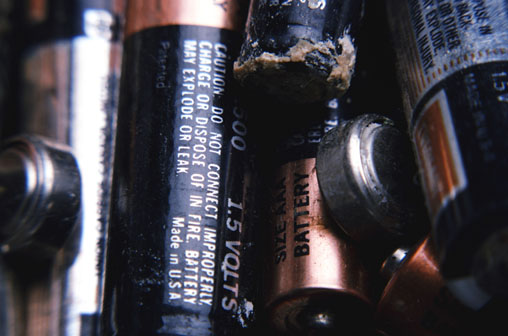Last Revised: September 03, 2025
The Office of Environmental Health and Radiation Safety (EHRS) will collect used batteries* for recycling (listed below) only from university research laboratories. To request a pickup of used batteries you may submit an online waste pickup request form at Chemical Waste Pickup Request Form
Other university departments cam check the Penn Sustainability - Specialty Recycling Collections Map to locate a drop off location.
If your building/School does not have a drop off location, additional options are below:
1. eForce can provide your building with a battery recycling tube at a one time cost.
When the tube is around 80% full, please submit a work order request through the FRES website for the Urban Park team to service the battery cylinder.
2. Sign up with "Call2Recycle". For a nominal fee, they will send you a collection box which can shipped back to them when filled.
*Regular alkaline batteries can also be disposed of in the regular trash. 
Alkaline (carbon-Zinc): These are common non-rechargeable batteries that most people use. Alkaline batteries are not regulated as hazardous waste and can be disposed of in the regular trash or sent to be recycled.
Lead-Acid batteries: These include automotive and smaller gel-cell batteries commonly use in emergency lighting systems. Lead-Acid batteries contain regulated amounts of lead and must be recycled.
Lithium Batteries: These batteries come in a variety of shapes and sizes, and are commonly used in computer clocks, cameras, watches, and other equipment. These batteries are not regulated hazardous waste, but EHRS manages them as such.
Mercury batteries: These are usually small and button shaped. Mercury batteries contain regulated amounts of mercury and should be handled as hazardous waste. These batteries are no longer available in the United States although they may still be found in older equipment.
Nickel-Cadmium: These are the most common rechargeable batteries and are commonly found in cellular phones, and other types of rechargeable equipment. NiCd batteries contain regulated amounts of cadmium and should be handled as hazardous wastes.
Nickel Metal Hydride: These are rechargeable batteries that are commonly used in cordless hand tools and other types of equipment. These batteries are not regulated as hazardous waste, but EHRS manages them as such.